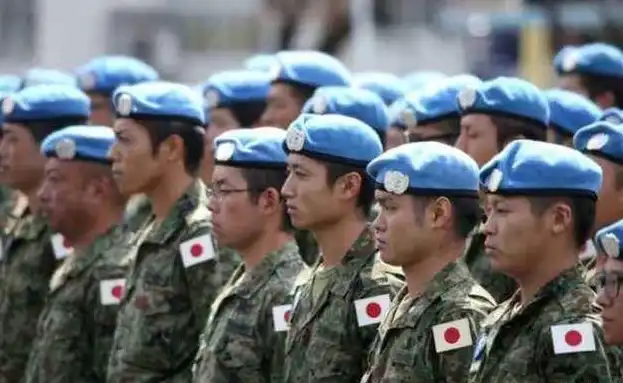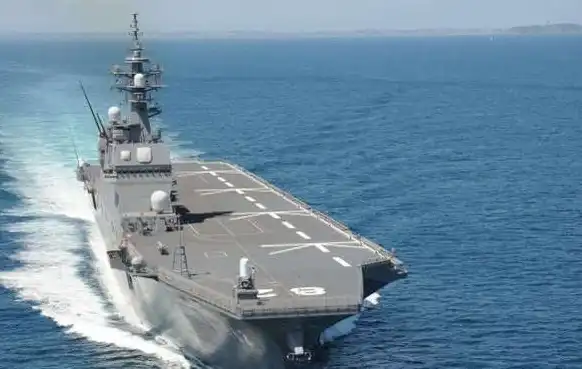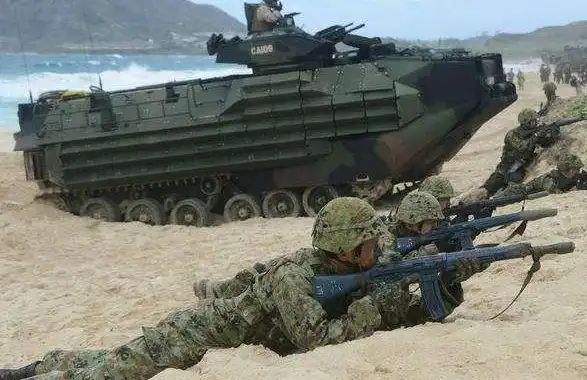With the tacit approval of the United States, Japan has emerged as a super military power
Amidst the evolving global landscape, nations across the globe are bolstering their military capabilities, seeking to secure their place in potential future conflicts.
The United States, as a global superpower, has long regarded China and Russia as major strategic rivals.
In military, economic and technological fields, the United States spares no effort to increase its suppression and sanctions on the two countries to maintain its global hegemonic position. As such, this global strategic layout may neglect a potential variable - Japan.

Japan, the country whose military was restricted after World War II, got on the fast track of economic recovery under the shelter of the United States, and gradually developed into a world economic power.
The United States provided Japan with extensive economic and technical assistance in order to expand its influence in Asia and also assisted Japan in establishing Self-Defense Forces.
For decades, the Japan Self-Defense Forces have been developing steadily in a low-key manner, and their military strength can no longer be underestimated.
It is reported that although the total number of Japanese Self-Defense Forces are only about 250,000, its combat power is extremely strong. Japanese soldiers are strictly trained and their command and combat capabilities are among the best in the world.
More alarmingly, Japan is capable of rapidly fielding a 5-million strong army if need be, demonstrating an impressive mobilization and organizational capability. This latent military prowess is enough to make any nation reconsider its perception of Japan.
Japan has dedicated itself to investing in military force. Although it has international restrictions on military activity, it has been able to develop a vast, modern military force under the name of “self defense.”
Japan already has 7 aircraft carriers, 40 destroyers, and 10 missile-type destroyers. Such military strength far exceeds the scope of self-defense.

Meanwhile, Japan’s military budget has remained high, and its military industry is well-developed, capable of independently researching and developing advanced military equipment.
Japan has remarkable achievements in various areas such as missiles, vessels, aircraft, and tanks. Its self-developed missiles and vessels are close to the world's advanced level in performance.
Japan has also established a relatively complete military reconnaissance satellite system, which further improves its global military reconnaissance and strike capabilities.
However, all these developments seem to have proceeded with the tacit approval of the United States. Perhaps for historical reasons and strategic interests, the U.S. has adopted a permissive stance towards Japan’s military expansion.
Behind this complex international relationship hides the United States' profound consideration for the strategic layout of Asia-Pacific and the world.

Throughout history, as the ancients said:"If the military is strong, the country is strong. If the military is weak, the country is weak." Japan's rapid development of military strength not only brings about a reassessment of military balance, but also profound contemplation on international relations and strategic layout.
If Japan were to overtake the US at some point in the future, it is a question that all countries should deeply consider whether it would choose a different path.
Japan's rapid military ascent has had profound implications for the global security landscape.
In this multipolar world, every country makes constant efforts to safeguard its own security and interests.
Japan's rise has undoubtedly given the world a profound warning:In international competition, only by continuously developing can competitiveness be maintained. For the United States, it may be necessary to re-examine relations with allies, as well as long-term considerations for its global strategic layout.
